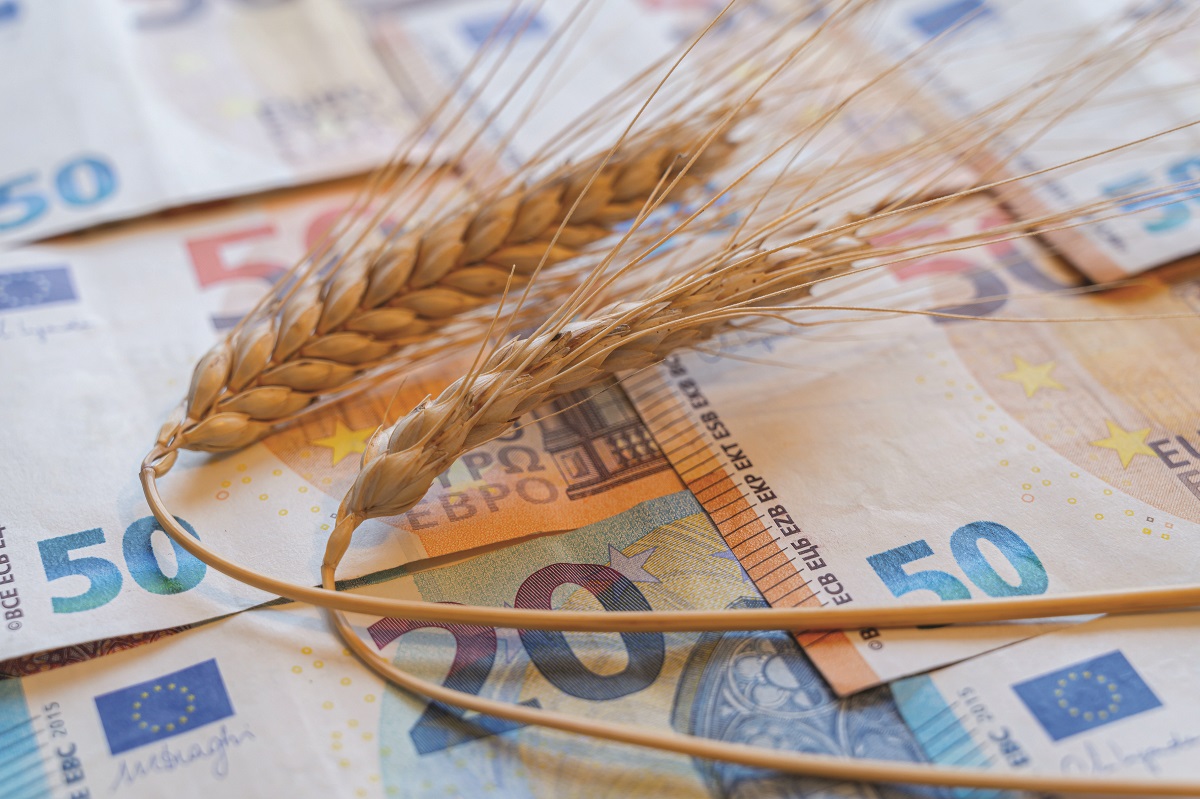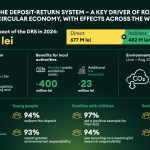
Hiding in plain sight – the Black Sea Grain Initiative, solidarity corridors and the single market
Investories BRCC
Foto: LeleMezzadri/ depositphotos.com
S een from a very rural part of the UK, Russia’s war in Ukraine seems a very long way away. Yes, there are reports that farmers in the UK are suffering a rise in thefts of agricultural machinery and equipment – particularly GPS units used in planting, watering and harvesting – which are believed to shortages of this equipment created by sanctions imposed on Russia and Belarus. The larger issue for British agriculture is perhaps a matter of market access for agricultural produce, highlighted by what is happening in Romania and other EU states which border on Ukraine in connection with the Black Sea Grain Initiative. There are parallels between the market access challenges faced by the UK agriculture and agriculture in Romania and elsewhere in the EU. These challenges have different immediate causes, but that in the UK is more immediate and that for Romania and the EU is coming – but does not appear to be widely discussed at present, except in so far as may be in the political context in Poland, Hungary and Slovakia.
The departure of the UK from the EU’s single market has opened opportunities for trade deals between the UK and other countries. Whether that change is responsible, in whole or in part, for increased food prices in the UK I will leave for others to discuss, but two of the new free trade agreements which the UK has negotiated are those with Australia and New Zealand, both of which came into force at the end of May 2023. The particular “hot issue” here is that these countries are good at producing meat: beef and mutton. Leaving aside arguments about whether quotas in weight are to be carcass weight (which includes the bones) of just the meat, the effect of these free trade agreements are that very efficient livestock producers in Australia and New Zealand will now have greater access to the UK market, in competition with British farmers and producers.
What effect this will have on the UK farming industry – and the rural vote – and on food prices in the UK – and the votes of consumers – remains to be seen, although it is clear that there will be an element of change (not to say disruption) in the market. What is clear is that these changes are now upon us, with both free trade agreements having entered into force.
There is a similar situation in Romania and the rest of the EU, although the real challenge has not arrived yet. The “hot issue” here is grain, rather than meat, and the factor which points ahead to the coming issue is “leakage” under the former Black Sea Grain Initiative and the Solidarity Corridors.
Ukraine grows and exports a lot of grain, including through the United Nations Food Program. In normal times Ukrainian grain is exported through its ports on the Black Sea to destinations such as the Middle East, Africa and south Asia. Wheat is not only used to make flour and bread – it is also a component of cattle feed. The escalation of hostilities in Russia’s war against Ukraine has already seen rises in global food commodity prices. Even allowing for the disruption that the war has caused to the supply of fertiliser and the fact that Ukrainian agricultural land has been occupied by Russia or put out of use through having been contaminated by mines, Ukraine still has a lot of grain for export and many developing countries depend upon this supply. The sea lanes from Ukrainian ports have however become difficult for commercial shipping to use, due to the danger of loss from the hostilities and / or the difficulties of obtaining insurance to take vessels into what is a zone of open warfare.
The Black Sea Grain Initiative was intended to address the “blockage” of the shipping route for grain, related products and fertiliser between Ukrainian ports through the Black Sea to the Bosphorus in Turkiye. The parties to the Initiative were the United Nations, Turkiye, Ukraine and Russia. Whilst it had a measure of success (there were reports of delays in inspecting vessels for clearance to use the safe route created by the Initiative), it was in force for limited periods only, without the certainty of being renewed on the expiry of any period of operation. The most recent period of the Initiative expired in July 2023 with Russia setting conditions for renewal which were not acceptable to all of the other parties. An attempt to revive the Initiative with a meeting between the Russian and Turkish presidents in Sochi in early September was unsuccessful. Recent developments have seen limited sailings from Ukrainian Black Sea ports, as well as Russian drone attacks on Danube ports being used for the export of Ukrainian grain.
Although bulk export by sea from Ukrainian ports directly to the countries which need Ukrainian grain is the most efficient transport solution, there are other possibilities to use ports in the EU, despite logistical challenges such as the difference between the broad gauge of railways in Ukraine and the narrower standard gauge used for most railways in Romania and elsewhere in the EU. The use of (and Russian drone attacks on) the Danube ports of Reni and Ismail (opposite the Romanian riverbank) have been mentioned above. Solidarity corridors have been established to allow the passage of Ukrainian grain to EU ports, with the intention that this grain will be exported rather than enter the EU’s single market. Leakage of cheaper Ukrainian grain into the EU’s single market not only affects farmers in the EU but also means that it is no longer available for supply to the developing countries where it was intended to be sent to.
Leakage is however thought to have occurred and there have been protests by farmers in the EU about cheaper Ukrainian grain competing with their own produce. The result has been initiatives by individual EU countries to ban the import of Ukrainian grain, which is an area which should be co-ordinated at the EU level (although individual states can argue that their measures are permitted on phytosanitary grounds, such as the detection of pesticides on Ukrainian grain which are not permitted in the EU). In addition to offering financial support to farmers in Romania, Bulgaria, Hungary, Poland and Slovakia, the EU imposed temporary restrictions on the import of Ukrainian grain, which were not renewed when they expired in September 2023. Poland, Hungary and Slovakia have promptly imposed their own unilateral bans on the import of Ukrainian grain, leading to Ukraine taking making a complaint to the World Trade Organisation which, ironically, will need to be defended by the EU as having responsibility for trade matters in the EU, notwithstanding that the unilateral action by these three member states appears to be in breach of the EU’s exclusive responsibility for this area. The rural vote and the recent and impending general elections in these countries is probably not unconnected with this unilateral action.
So, apart from the internal politicking in the EU over this issue, what is the “elephant in the room” here? Ukraine wishes to join the EU and has received expressions of support from politicians in member states. Looking at the situation caused by Russia’s invasion of Ukraine, it is hard to disagree that Ukrainian membership of the EU would be a good thing, subject to Ukraine making or embarking on the necessary reforms to align it with EU standards.
The issue which is hiding in plain sight – although it has become much more prominent from the current arguments about the leakage of Ukrainian grain from the solidarity corridors – is that Ukraine’s future membership of the EU implies the access of Ukrainian grain to the EU’s single market. There are two aspects to this:
What will be the effect on the EU farming sector (and on food prices in the EU) if Ukrainian grain has free access to the single market in the EU?
If grain produced in Ukraine is in future sold into the EU, what will happen to the supply of grain which is currently made from Ukraine to developing countries?
There would appear to be potential implications here not only for the rural economy in Romania and in other EU states, but for global food security. No doubt these implications are being considered, even if solutions are not prominently debated, but this may make the effects on the UK’s meat market of the Australian and New Zealand free trade agreements appear to be “mic copil”.
Neil McGregor, Vice-Chair for Corporate Governance & relations with the British Chambers of Commerce, immediate Past Chair, BRCC
Share
Share















